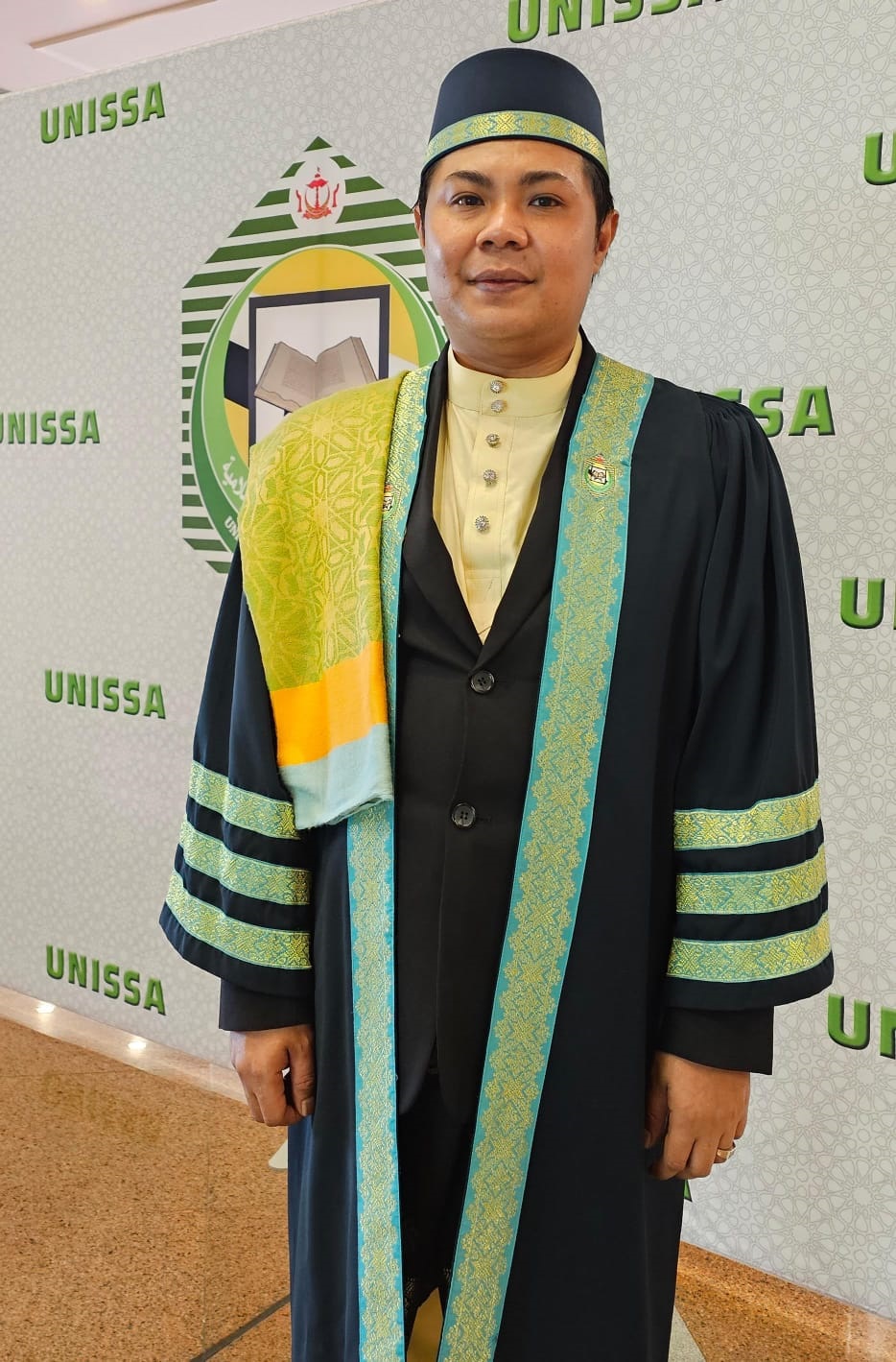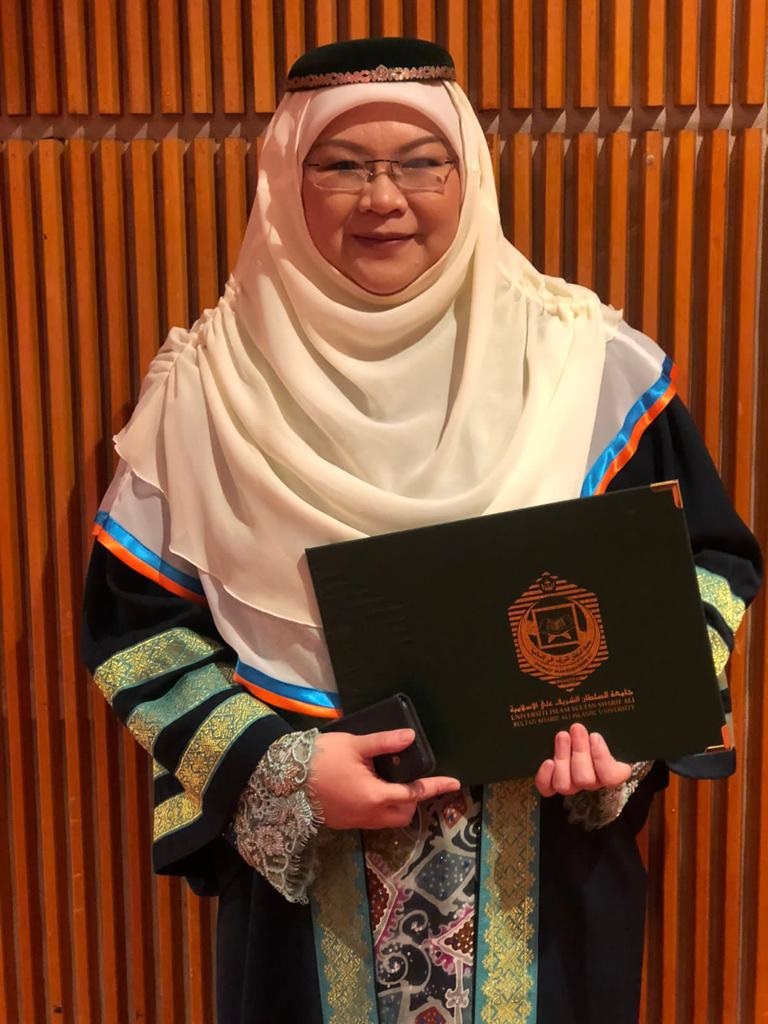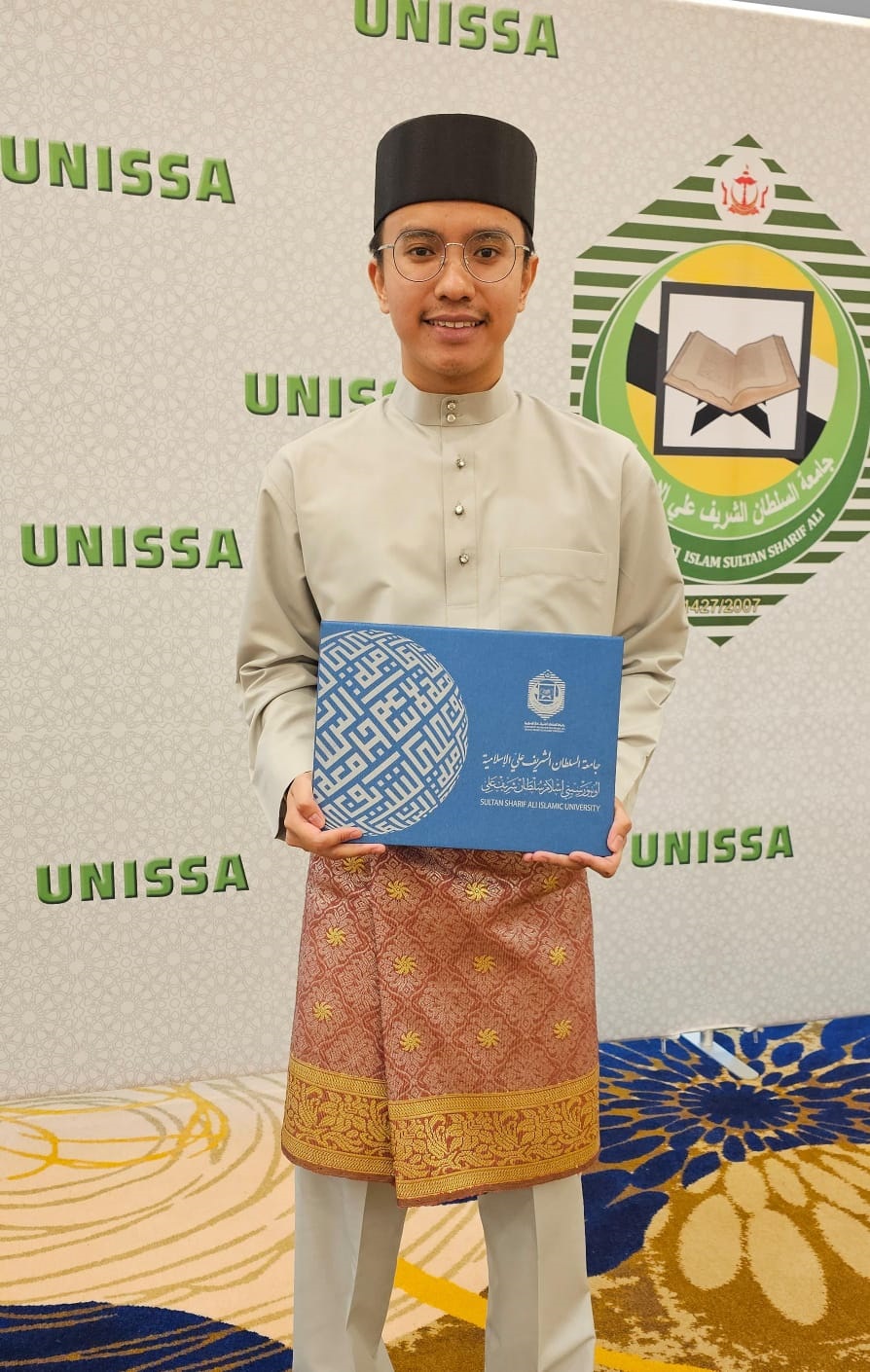Outstanding UNISSA graduates share their journeys to achieving greatness.
There’s a well-known saying that goes: “Where there’s a will, there’s a way.” When someone is truly determined to achieve something, they will find a solution or path forward, even when faced with obstacles.
Exemplifying the saying are three graduates from Universiti Islam Sultan Sharif Ali (UNISSA) – Dr Nur Muhammad Firdaus bin Abu Bakar, Dr Hajah Rafizah binti Haji Abdullah and Abdul Rashid bin Haji Zaini – who shared their successes, struggles and self-motivation in achieving what they had worked hard for throughout their time at UNISSA.

Dr Nur Muhammad Firdaus dedicated five years to his Doctor of Philosophy (PhD) in Islamic History and Civilisation.
Currently in his 30s, Dr Nur Muhammad Firdaus shared that he is temporarily employed as a religious officer at the National Service Programme (PKBN) in the Temburong District.
“As I embarked on my research and studies, I encountered various challenges and struggles along the way,” said Dr Nur Muhammad Firdaus.
One of the most memorable experiences during his research journey was being asked to present his topics in a seminar, addressing complex questions related to his research. There was also the issue of changing supervisors as his initial supervisor ended the tenure.
“I have to admit that there were moments where I contemplated giving up on my pursuits because of various influencing factors, like the change in supervisors.
“It made me feel as if I had no one with the expertise or guidance to help me complete my research.”
Despite the adversities, he focused on the efforts he had already invested in leading him to stay resilient and forge ahead on his path to completing the programme.
Dr Nur Muhammad Firdaus would consistently seek guidance from his lecturers and supervisors to improve his research, ensuring that he could maximise the quality of his work, particularly in terms of research input, resources, and findings.
Dr Nur Muhammad Firdaus shared that his research was closely linked to Brunei Vision 2035, with a specific focus on the societal transformation required to achieve it.
He illustrated this by highlighting one of the goals outlined in Brunei Vision 2035, which centres on cultivating highly educated and skilled citizens, noting that the government has introduced several initiatives to enhance education in the country.
Drawing from the theories of renowned Islamic scholar Ibn Khaldun as the foundation of his research approach, Dr Nur Muhammad Firdaus gained valuable insights into the necessity for society to invest in the agricultural sector.
He said the approach aligns with the repeated call to focus on agriculture from His Majesty Sultan Haji Hassanal Bolkiah Mu’izzaddin Waddaulah ibni Al-Marhum Sultan Haji Omar ‘Ali Saifuddien Sa’adul Khairi Waddien, Sultan and Yang Di-Pertuan of Brunei Darussalam.
Looking ahead, Dr Nur Muhammad Firdaus said he has applied to become a lecturer or educator. The decision stems from his desire to share the knowledge he has acquired and embark on further research in the field.

Meanwhile, Dr Hajah Rafizah extended her heartfelt gratitude to those who had supported and motivated her throughout her four-year journey as an in-service student pursuing a PhD in Arabic Language.
Currently serving as a lecturer at the Faculty of Arabic Language of UNISSA, Dr Hajah Rafizah’s PhD research primarily focused on thesis writing.
Before being accepted into the PhD programme, she diligently attended various courses, including manahij al-bahth or education methodology and Al-Quran studies, as prerequisites for her academic journey.
As an academic in Arabic language, Dr Hajah Rafizah saw it as her responsibility to carry out research in the teaching and learning of the Arabic language, especially in non-Arabic speaking countries such as Brunei.
“Shouldering this sense of responsibility drove me to undertake research in the field,” said Dr Hajah Rafizah.
When discussing the numerous challenges she faced, one notable aspect was time management. This included the delicate balancing act of fulfilling her familial commitments while dedicating time for writing and resource gathering to complete her thesis.
“I would usually carry out my thesis writing in the morning during dawn. I often grappled with feelings of laziness and moments of frustration when encountering mental blocks.
“Nevertheless, with the guidance of my supervisor, the unwavering support from my family, the assistance of my teachers and the presence of positive friends who served as my comfort zones, I successfully overcame all these challenges.”
When expressing her perspective on the development of the Arabic language in Brunei among non-native speakers, Dr Hajah Rafizah remarked that it has been steadily improving in the Sultanate.
“It’s evident that the establishment of several Arabic schools and the introduction of Arabic language courses at religious schools have played a significant role in contributing to this development.
“Workshops and programmes related to teaching and learning of the Arabic language are also increasingly common, including those offered by UNISSA,” said Dr Hajah Rafizah.

Meanwhile, Abdul Rashid, 23, who is the recipient of the Pro-Chancellor Medal and a graduate with a Bachelor of Arabic Language and Translation from UNISSA, highlighted his efforts to enhance his language skills.
He said the creation of study circles or groups to facilitate Arabic language communication helped him cope.
Abdul Rashid, along with his friends, seized the opportunity to refine their Arabic language proficiency when they were selected to participate in a programme organised by a higher learning institution in Oman.
“The event exposed us to immersive Arabic language communication, significantly enhancing our knowledge,” said Abdul Rashid.
Supported by a positive environment and strong encouragement, the 23-year-old maintained excellence throughout his programme and received book prizes.
To gain nomination for the Pro-Chancellor Medal, Abdul Rashid said among the challenges, include maintaining a minimum 3.80 GPA and demonstrating leadership skills and community engagement while excelling in examinations.
Following the successful completion of his Bachelor’s degree, Abdul Rashid has plans to pursue a Master’s degree, with the aspiration of pursuing a PhD in Arabic language afterwards. – Rokiah Mahmud







